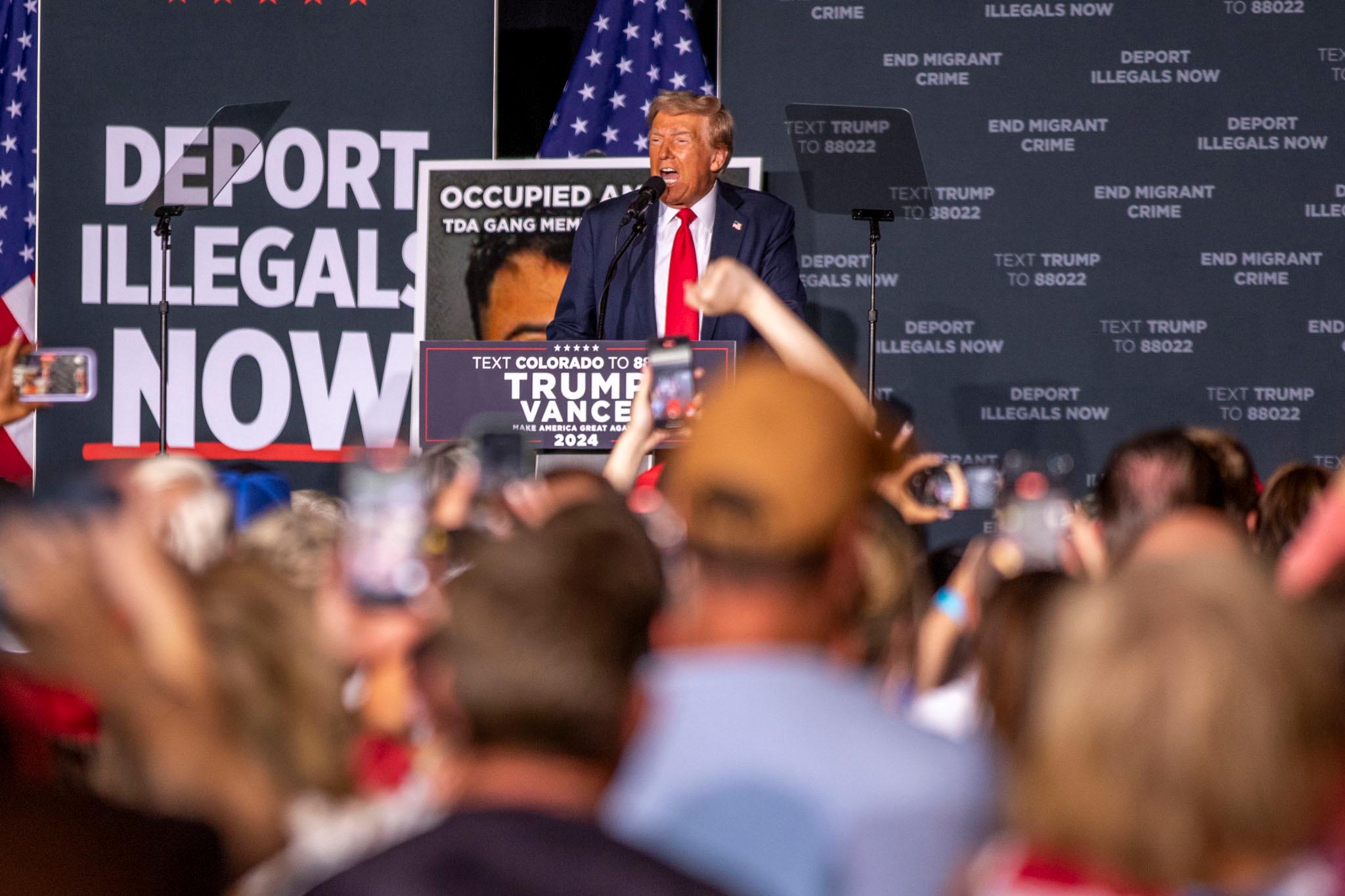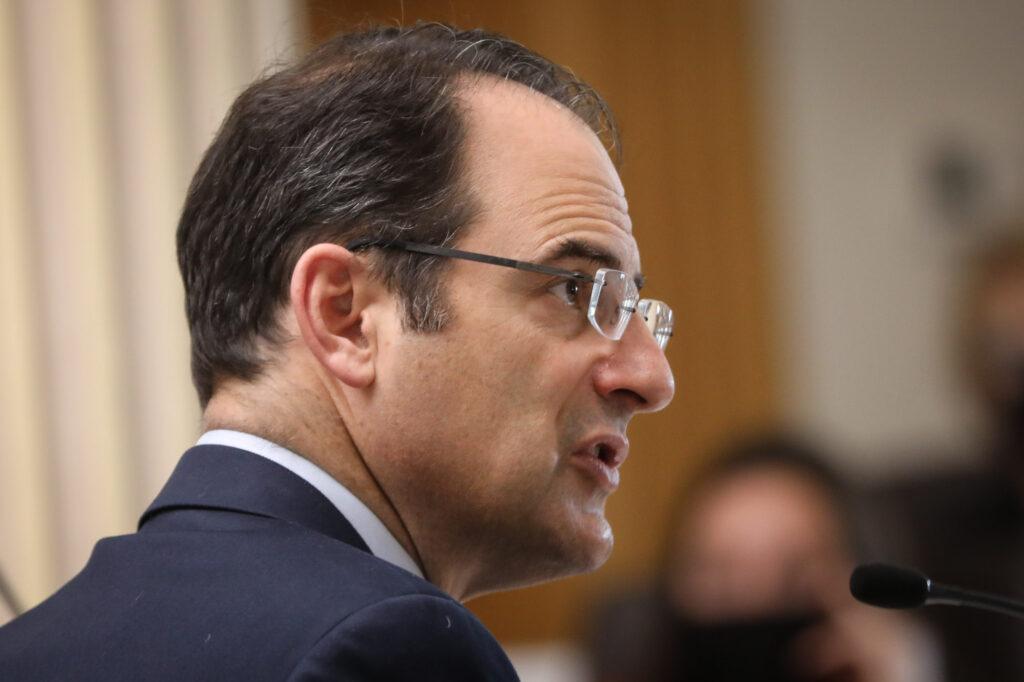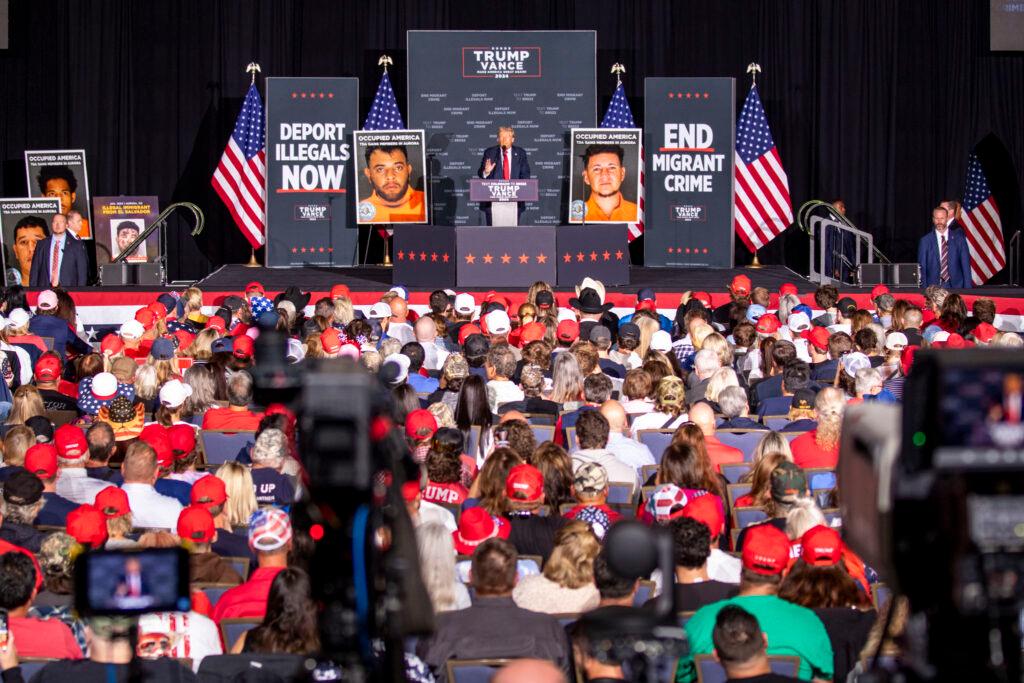
Federal, state and local officials are hiring additional staff, preparing legal arguments and girding for a fight to protect Colorado’s immigrant communities as President-elect Donald Trump nominates hardliners to back up his tough talk on mass deportations.
“We’re looking at all possible avenues for them to assault our community, so I don’t think we should rule anything out at this point,” said Democratic Rep. Jason Crow, who represents Aurora in Congress. “We will use all of our tools and all of our power available to protect families and protect folks in our community who need our protection.”
In 2019, State Attorney General Phil Weiser took the Trump administration to court over their punitive decision to yank federal law enforcement grants from Colorado because it was considered by the then-administration to be a “sanctuary state.”
A federal judge in 2020 sided with the state and forced the federal government to hand the money over, which paid for police equipment at various agencies around the state. In his ruling, the judge said there was no statutory reason for the federal government to impose restrictions on existing grants.
In an interview, Weiser said he expects these kinds of actions again.
“The best sign of what we may face is I believe what we have faced before. They had agendas last time that were thwarted because courts stood up for the rule of law. We still have checks and balances and we’re going to use them,” Weiser said. “We’ve had to go through challenges like this before. This isn’t the first time. We’re going to be ready.”
Between late 2022 and 2024, more than 40,000 immigrants arrived in Colorado – many of them Central and South Americans who crossed the border with Mexico and were then sent north from border states by Republican governors. State and Denver officials, as well as multiple non-profit organizations, stood up months of crisis response, helping the new arrivals with everything from clothing, shelter, food and job placements.
In that crush, Gov. Jared Polis and Denver Mayors Michael Hancock and Mike Johnston created offices to deal with the logistics. There is now some worry that the new presidential administration may threaten the state to hand over data they collected on families who received assistance.
Weiser said he would push against that.
“One of the key foundations is that we live under the rule of law, no matter who you are and what party you supported, you’re to be treated fairly just like everybody else and if we started seeing actions that were arbitrary based on who you are, that’s a core threat to the American system,” he said. “And I would take that seriously.”

State officials from Polis’s Office of New Americans wrote in a 2024 report ahead of the election that Colorado’s commitment to help recent arrivals will not change based on politics.
“One thing that will not change is Colorado's commitment to integration of new Americans,” it said.
In an interview with Colorado Matters, Polis said he would welcome federal government help to root out criminals and gang members — but beyond that, the governor says there is going to be a fight.
“Obviously, the fear is he’s talking about going after law-abiding Coloradans who might’ve lived here for 20, 30 years, who are working as construction workers or in ag or in the hospitality industry,” Polis said. “And obviously it would devastate our economy and our society if someone were to come in and forcibly take our neighbors away from us.”
On the campaign trail earlier this year, Trump called Aurora a “war zone” because of its Venezuelan immigrants -- a handful of whom have been arrested and tied to gang activity. He pledged to carry out “Operation Aurora” to deport every undocumented immigrant with a gang tie nationwide. But how the administration would determine a gang tie is an open question.
Trump’s choice for border czar, Tom Homan, pushed for the policy of separating families at the border and pushing for a “remain in Mexico” policy, which means people seeking asylum in the United States would have to wait in Mexico until those asylum claims were decided.
It’s not yet known what, if any, actions Trump will take to make good on his campaign promises of mass deportation. His track record of following through on pledges is spotty. There is no complete wall across the border, for example, and Mexico certainly didn’t pay for the 52 miles of new primary border wall that was completed during his first term.

But if he did seek to do a mass roundup in Colorado, it seems likely he would need help from local and state authorities – for detention facilities at the very least – and state law prohibits law enforcement officials from working with immigration authorities. In the past, Aurora police chief Todd Chamberlain has said he doesn’t believe in doing immigration enforcement, only law enforcement.
Since Trump’s election, both he and Aurora Mayor Mike Coffman have refused media interviews about how they will handle potential federal demands to assist with immigration enforcement.
Asked about a potential “Operation Aurora” and how that would work with Aurora law enforcement, an Aurora police spokesman said, “Chief Chamberlain is not interested in participating in an interview about this topic at this time.”
The city provided a statement that said they will “work with our federal partners and follow federal law and directives as they apply to our community.”
Omar Montgomery, who leads the Aurora NAACP and also works at the city’s chamber of commerce, said he worried about potential labor problems if there was a “roundup” or broad crackdown.
“We have to be smart,” he said. “I hope our city council sees the beauty in our diversity and not gets on the bandwagon of terrorizing communities. There is a way to get criminals out of our community. But let’s not terrorize whole communities .. people are just trying to live a good life and enjoy the city of Aurora.”
U.S. Sen. Michael Bennet’s office said they have already seen an uptick in constituent calls for service for immigration help – that includes people who are concerned about family breakups and deportations.
A spokeswoman at the office said they’re planning on hiring additional people to help with the call and case number volume and to prepare for what’s ahead.
“I’ve been trying to give as many assurances as I can give at this point,” said Crow, who first won his Congressional seat during Trump’s first term. “We will do everything in our power to protect families and children against folks in our community against an assault on Colorado values and our economy.”









